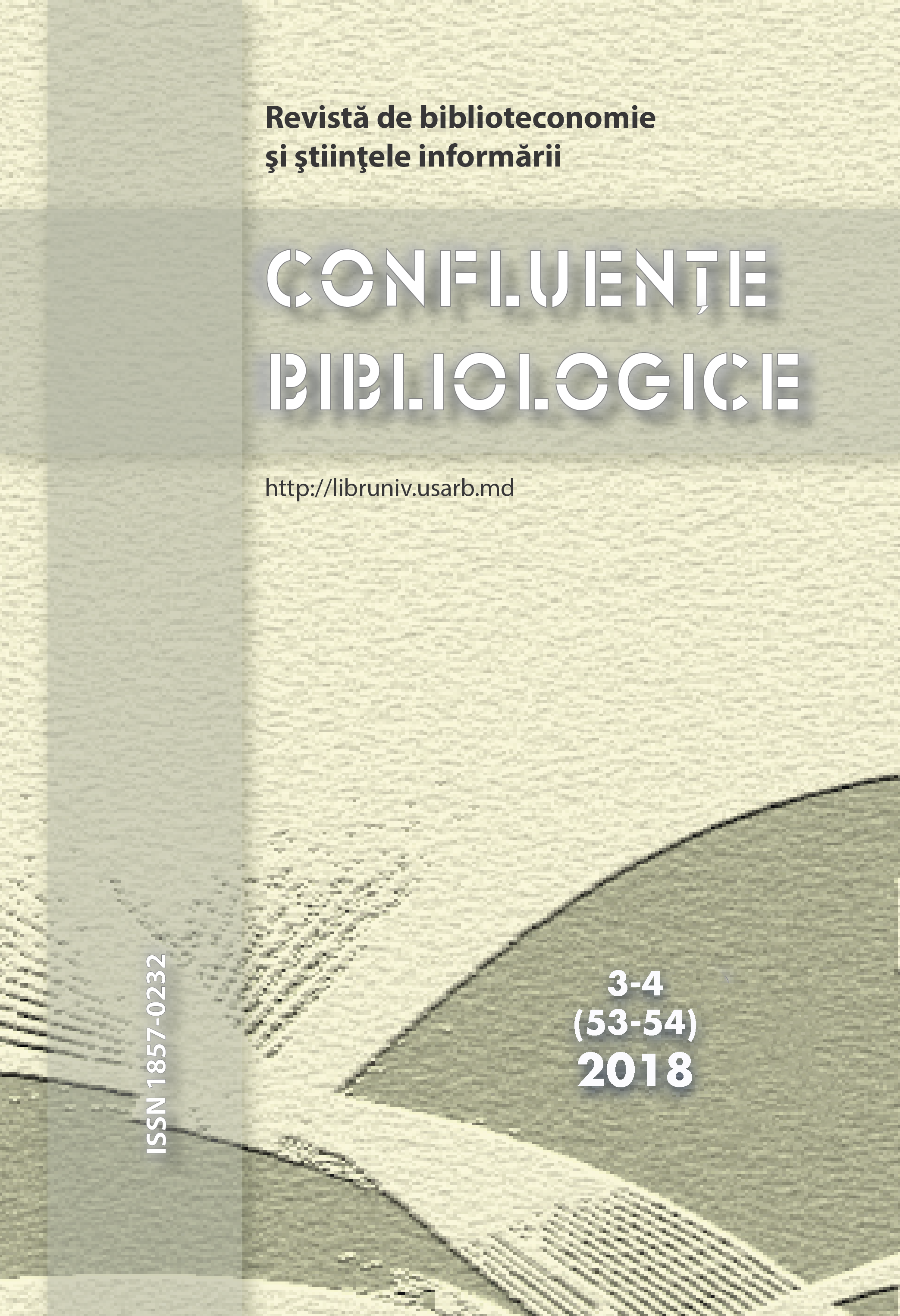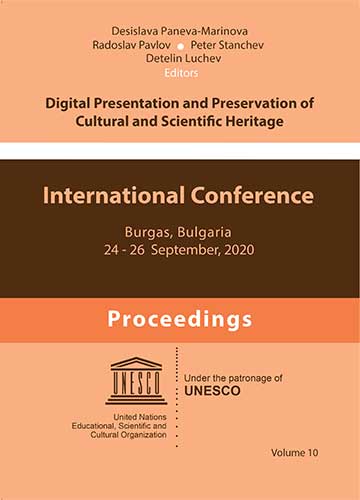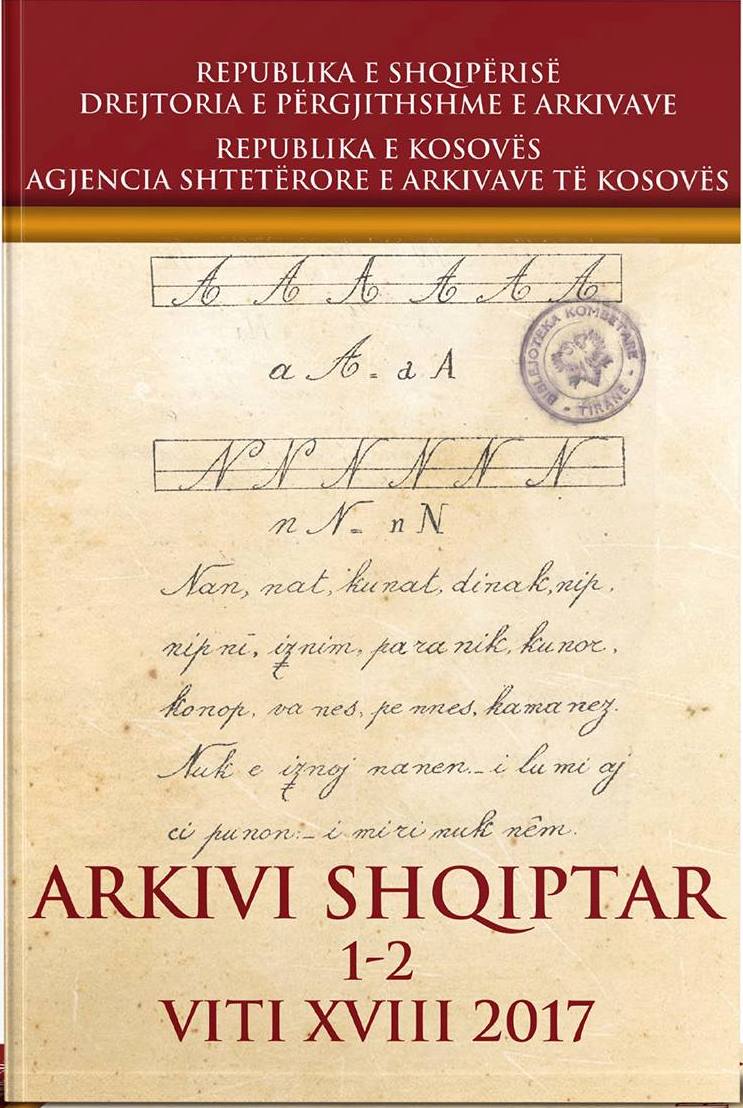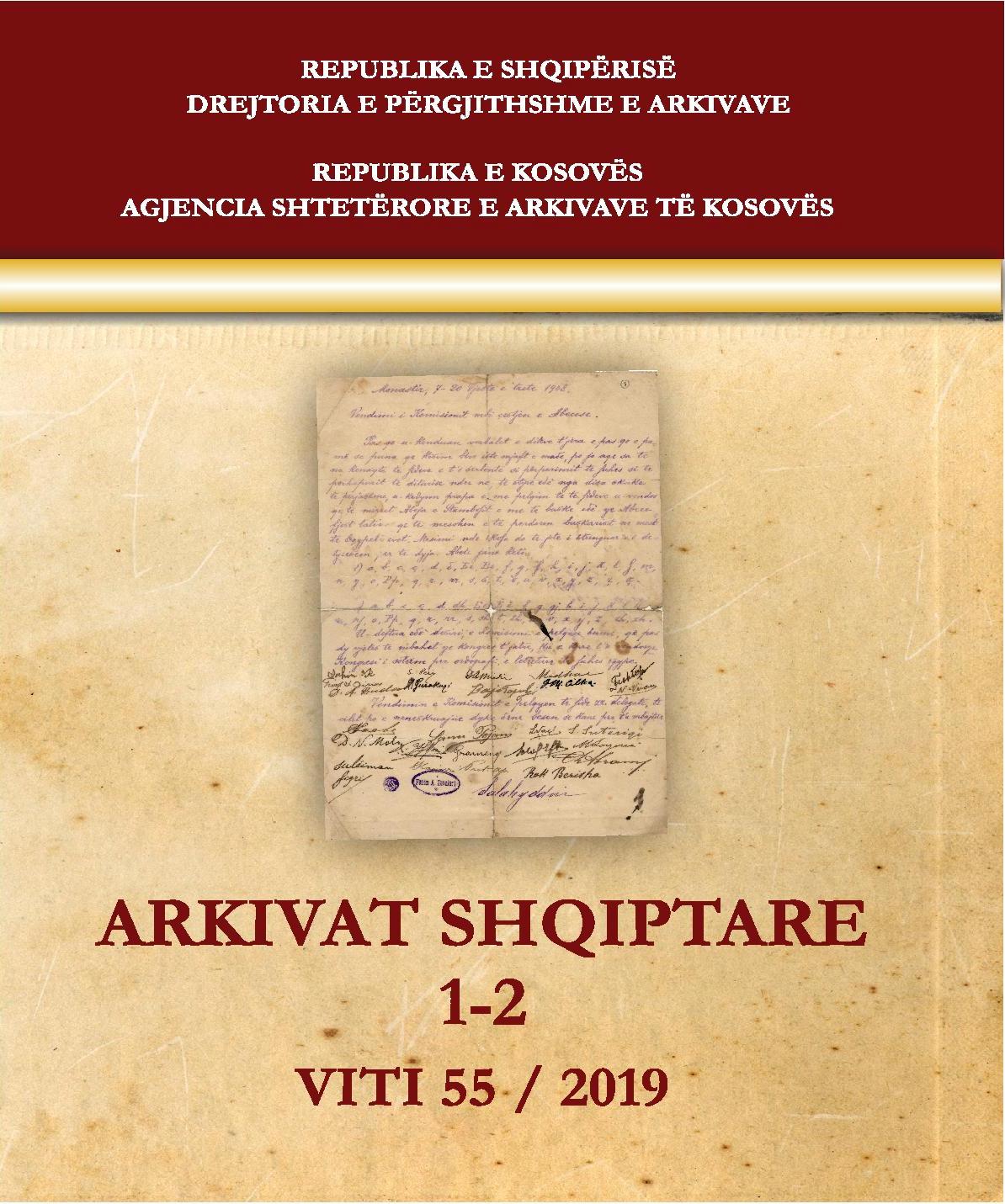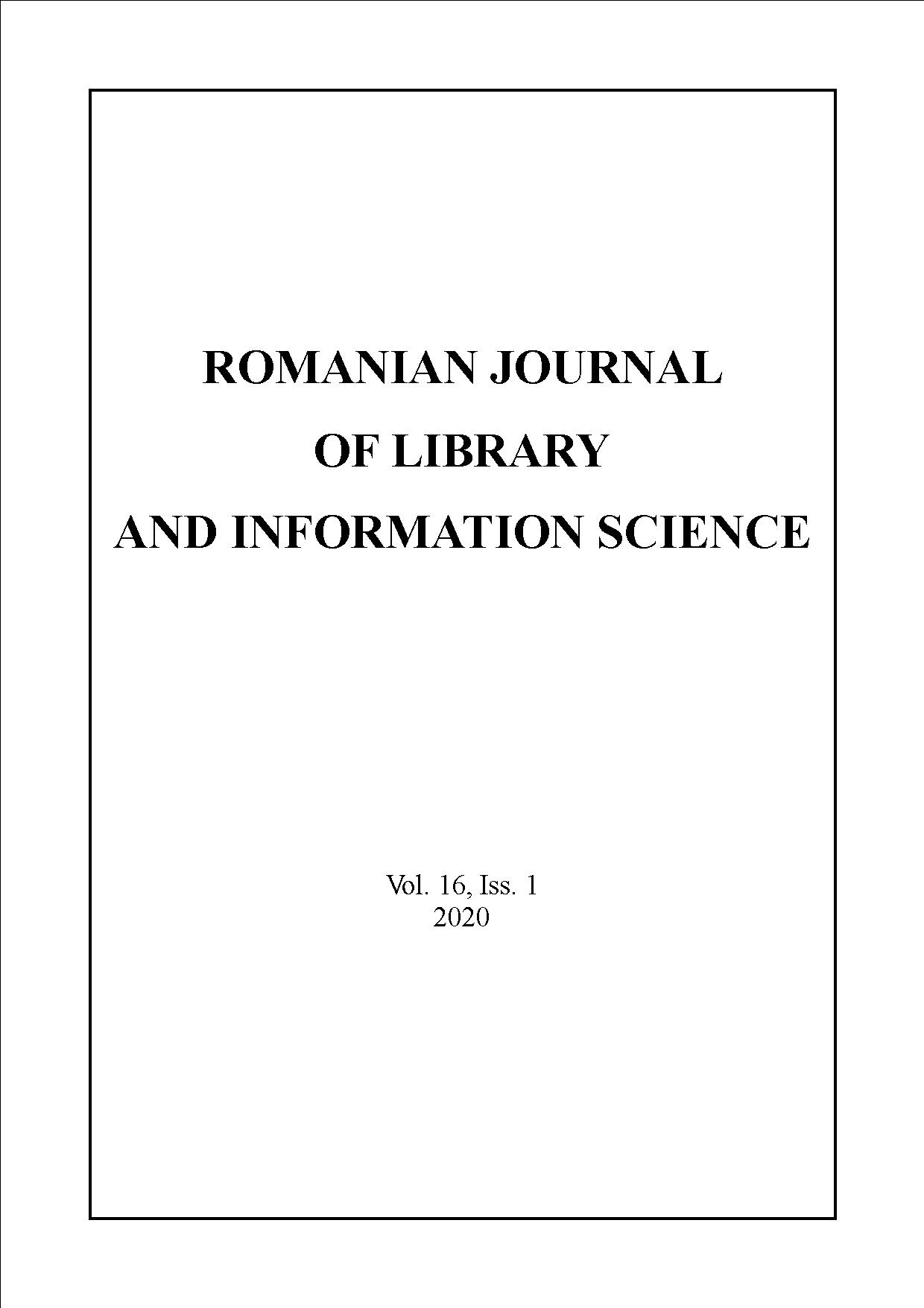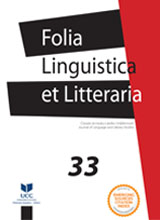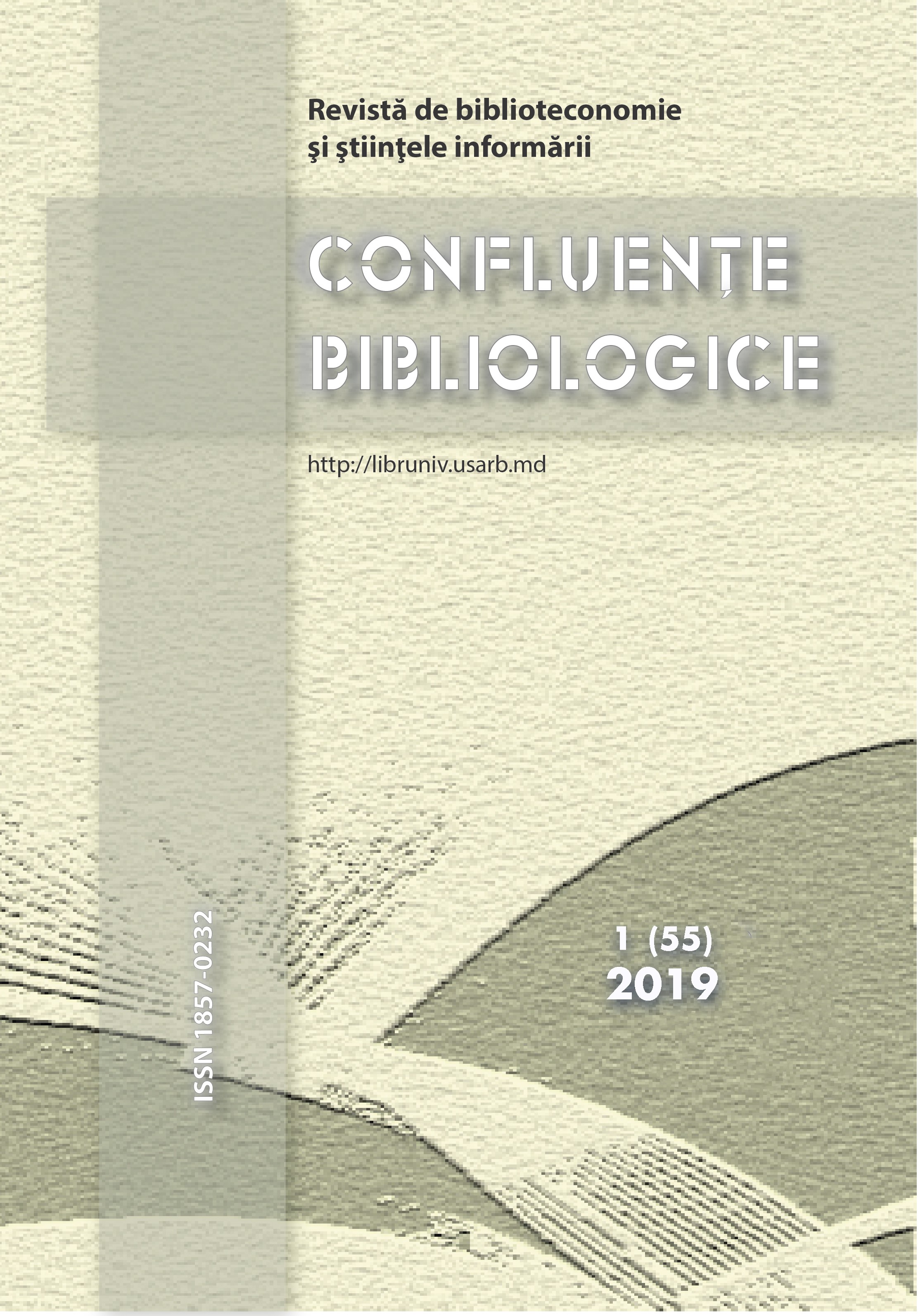Author(s): Elena Harconiţa / Language(s): Romanian
Issue: 1/2019
The article highlights the most important achievements of the USARB Scientific Library in 2018. The Library’s participation in the Projects has facilitated new knowledge and experiences, documentary visits in libraries in European countries, training workshops, webinars, promoted by international experts ,technical equipment worth more than 500 000 lei, international visibility in a virtual and physical way. The library was included in the Open World program, supported by the US Congress. The development of a modern system of information resources, services and educational products relevant to each specialty, specialization, doctorate and postdoctoral discipline continued. On January 1, 2019 the library collection has 1,008,018 m., 309,116 titles, worth over 14 million lei. The library provided modern services; the most requested were the electronic services: 26 707 Internet access, Wi Fi, access to 107 national and international databases containing over 1,800,000 thousand books and 80,000 periodicals; access to the PRIMO ExLibris electronic catalog (shared catalog of 7 university libraries in the Republic of Moldova) about 427 337 records, 23 087 visits, archiving and access to the USARB Institutional Repository (Open Research Archive), 2,948 titles (papers, articles) indexed, 126,942 visits; 5 own databases (4,713 visits): Digital Library, SumarScanat, Vinyl Disc Music (MP3 format), e-books. On the Library’s site was opened the MEDIA section where video about the Library and its products, videospots and videotutorial are placed.
More...
